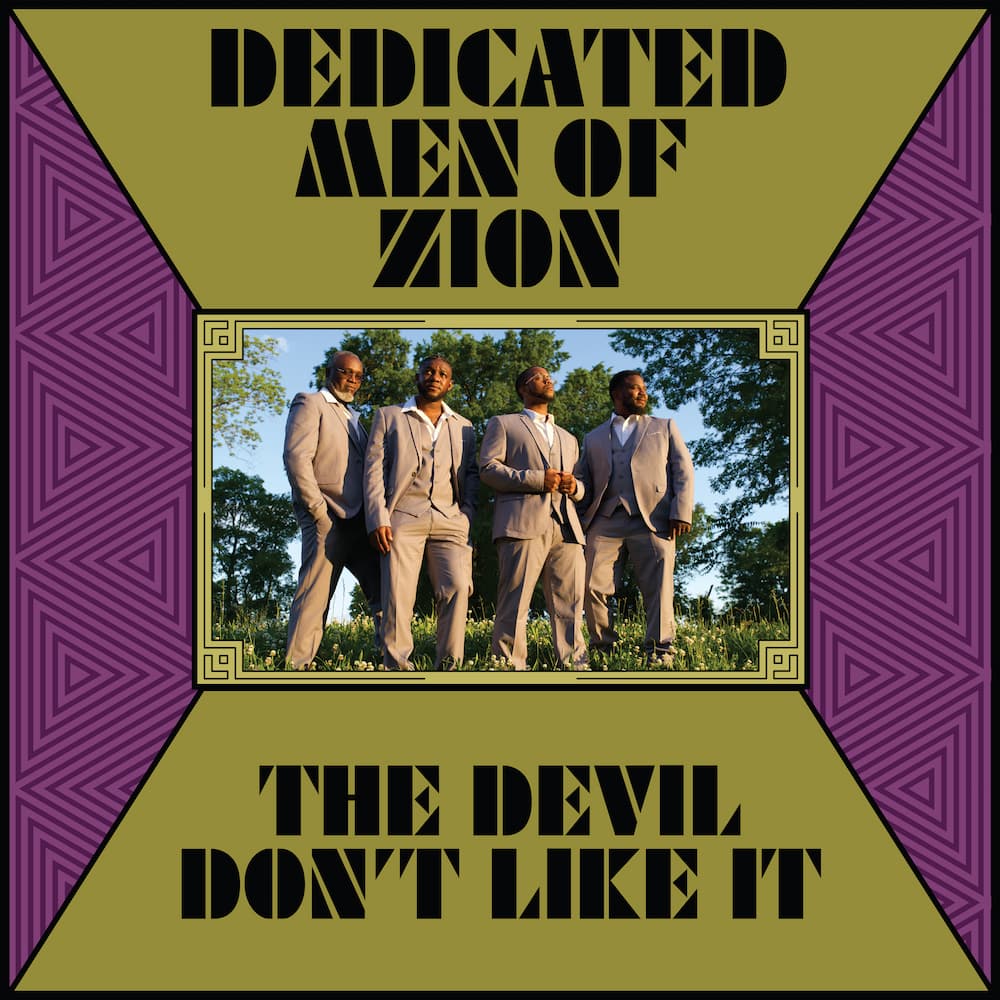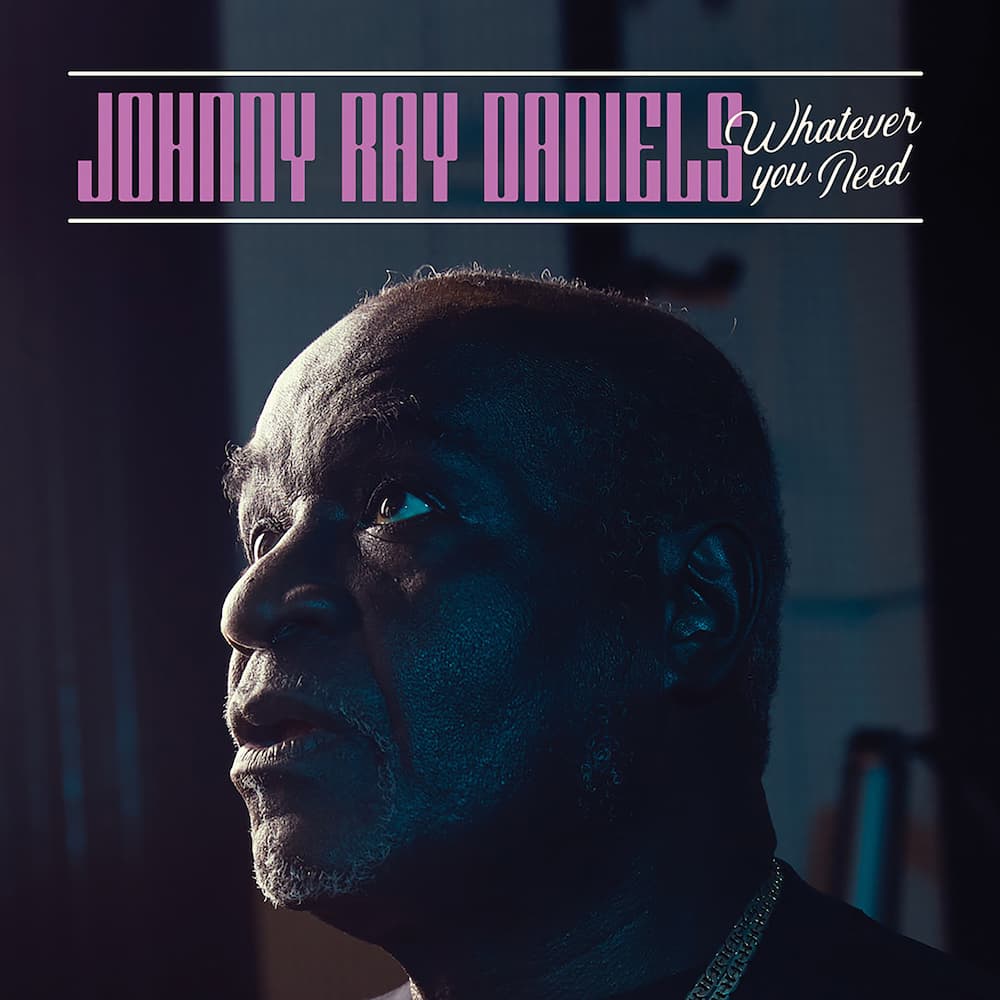
Bible & Tire Recording Company
Latest Release

Dedicated Men of Zion, The Devil Don’t Like It
3.4.22 (Bible & Tire Recording Company)
Hear
“Lord Hold My Hand”
DMZ
Watch
“The Devil Don’t Like It”
Official Music Video
Latest Release

Johnny Ray Daniels, Whatever You Need
4.15.22 (Bible & Tire Recording Company)
Hear
“I Shall Not Be Moved”
Johnny Ray Daniels
Watch
Documentary Feature
Watch
“Have You Tried Jesus”
Little Willie & The Fantastic Spiritualaires
Press
About
Bio – Johnny Ray Daniels
Greenville is the largest city in rural Pitt County, situated in North Carolina’s vast, flat, coastal plain. Surrounded by country and farmland, Greenville is still a small community by most measures, and was a quiet place to grow up. Daniels was raised in a farming family, until his father quit to work at a tobacco factory in the nearby town of Farmville. His mother, who had stayed home to raise the children, soon found work in the same factory, taking night shifts while her husband worked days. Daniels’ father played guitar, but only taught his son one song. Mostly, he watched his father and trained his ear to listen. Being self-taught honed his intuition for music. “When I play, it’s like I can hear a voice in my ear saying ‘do this, do that,’” he says. “I’ve got my own style because I don’t try to play like anyone else, I just play what I hear.”
By age 20, Daniels and a group of local friends started up a rock ‘n’ roll band called the Soul Twisters. They were popular in the local music scene, part of a period in Eastern North Carolina’s history that created a generation of musical talent shaping the national emergence of funk, R&B, and soul. For almost a decade the Soul Twisters played gigs as far north as New York and as close to home as the local venues frequented by students from Eastern Carolina University. When professional bands came through town, they were often asked to be the warmup act.
One night, Daniels’ life changed forever. He was standing on stage at a white nightclub in the neighboring city of Wilson, looking out over the faces of the audience dancing and drinking. “I saw them just like a picture,” he recalls. “In the blink of an eye, it was like I could hear the Lord saying, ‘You’re in the wrong place.’” He played out the rest of his booking obligations with the Soul Twisters, and then quit the band. The nightclub had been courting them with an exclusivity contract, offering good money and a custom van to travel in, but Daniels turned it all down, to the disbelief of the club’s owner. But by then he had made his promise to turn his life over to God. “You promise the Lord something and don’t do it, some big thing could happen. You don’t make a vow to the Lord and then back up.”
After leaving his gear and his guitar with his bandmates, Daniels started his music career over again, this time in the church. He began singing with his choir while running a business doing carpet and tile installation for the schools in Pitt County. He married a woman named Dorothy Vines, who was also singing in church with her sisters under the name the Vines Sisters. Daniels began attending their church, and when they found out he could play guitar they encouraged him to play piano too, something Daniels had never done. He started on just two fingers. “I said Lord, give me that gift and I’ll play it for you. My fingers opened up and I’ve been playing ever since.” Daniels put the music to every song the Vines Sisters ever sang as the group built up a reputation as one of the most stirring gospel groups in Eastern North Carolina. Holding to a hard-driving old-school quartet style, they were soon dubbed the “Glorifying” Vines Sisters by a local radio DJ, for the way they sang and shouted for the Lord. Daniels drove the Glorifying Vines Sisters on long road trips around the national gospel circuit, often coming home to sleep for four hours before putting in a day of work and getting right back on the road again. After 54 years, he turned his business over to his son Anthony, who leads his own group The Dedicated Men of Zion and continues the musical legacy of the Daniels and Vines families.
“I just love it anyway,” Daniels says of his dedication to music. “When I get up and go sing, I pray to the Lord to bless me that I’ll be able to bless someone else. If you go to a heater and it’s got no fire on, you ain’t gonna feel nothing. But you turn it on, you’ve got heat coming out of there. I want the people to feel and hear what I’m doing. I like to bless people and I like to make people happy.” Daniels released a solo LP in 2022 with the Memphis-based record label Bible and Tire, his first time ever recording as a solo artist. “By the help of God,” he says, “I’ve done it.”
–Zoe van Buren
Bio – Dedicated Men of Zion
The Dedicated Men of Zion came up out of this singing land of eastern North Carolina, around the city of Greenville and its small neighboring town of Farmville. Each trained in the church and the home, the group’s four vocalists – Anthony Daniels, Antwan Daniels, Dexter Weaver, and Marcus Sugg – share the bond of that upbringing and another more literal bond of kinship (they’re all family now through blood or marriage).
Theirs is a community dense with talent and legendary impact on the origins of gospel, funk, R&B, soul, and jazz; a place where the sounds of Saturday night and Sunday morning couldn’t help but jump their lanes. The group’s own backgrounds tell that story. Anthony Daniels, the eldest of the group, led a career in R&B down in Atlanta, backing up the likes of Bebe Winans, Toni Braxton, and Elton John. Antwan Daniels, the youngest member and son of Anthony, was playing keyboards and organ in church while simultaneously injecting his hip-hop production work with traditional gospel roots. But the church was always the backbone. Weaver, whose grandmother managed several gospel groups around Greenville, had sung with elder quartet groups for years, running into Anthony Daniels around the sacred soul circuit. When they both found themselves without a group, Weaver turned to Daniels and said “I don’t know what you’re gonna do but if you do something, I’m on board with you. I want to be with you.”
In 2014 Weaver and Daniels, with Antwan on keys, came together to form the Dedicated Men of Zion’s original iteration, along with singers Trevoris Newton and Darren Cannon. The group was quickly gaining a following in eastern North Carolina when Newton suddenly passed away in 2018. The loss of one member was soon followed by Cannon’s departure. The arrival of Marcus Sugg re-completed the group. Sugg, who had grown up singing in church choirs and a little on the side during a stint in the military, was soon to be Anthony Daniels’ son in law.
It was with this new vocal lineup that the Dedicated Men of Zion caught the attention of the Music Maker Relief Foundation while performing in a church concert organized by Music Maker and the Glorifying Vines Sisters, the longstanding Farmville gospel institution of Anthony Daniel’s mother and aunts. Joining Music Maker’s artist roster of roots musicians from across the South, the Dedicated Men of Zion began reaching new audiences not yet clued in to the rhythmic, electrified, sacred sounds of the rural southeast. Sacred Soul, being the music of personal and collective survival, even secular audiences were catching the spirit of joy and determination. The message, for Anthony Daniels, was always that “if He did it for me, He’ll do it for you. Just keep praying and love one another.” In troubled times, there’s a need for a hopeful word and a testimony that there is a way.
Through Music Maker, the group connected with the newly founded record label Bible & Tire Recording Co., helmed by producer Bruce Watson of Fat Possum Records. Watson had been listening to the hard-praising drive of country gospel coming straight from the church which he’d later coin as “sacred soul”. His new label was delivering that genuine soul sound beyond the church circuits from which it came. The gospel music coming out of those small rural Black churches was in fact the headwaters of much of the commercial music made over the last half century, and Watson was ready to bet that mass audiences, already familiar with the sounds of classic soul, would discover a hunger for gospel’s emotional truth and purposefulness.
The Dedicated Men of Zion’s, Can’t Turn Me Around, was recorded in Memphis at Watson’s Delta-Sonic Sound in 2019. Backed by Watson’s all-star studio band, the recordings bring great depth to the incredible harmonies that soar above. The album marks a moment of clarity for the group. By embracing their roots, they knew they were pointedly taking a right turn where some of their peers had veered left in a race to make gospel sound like anything other than what it was back in the day: soul music. Each track on Can’t Turn Me Around comes from that overflowing heritage of sacred soul. Tradition sets a high standard of excellence. What more can new artists pour into that cup? The Dedicated Men of Zion accepted that challenge with the seriousness of their raising and the joy of spiritual inspiration. With their second album they get back to where they came from – soul and the salvation of harmony. In Anthony Daniels’ own words, “You want to live, get to where the root is. Get close to the root.”
–ZOE VAN BUREN